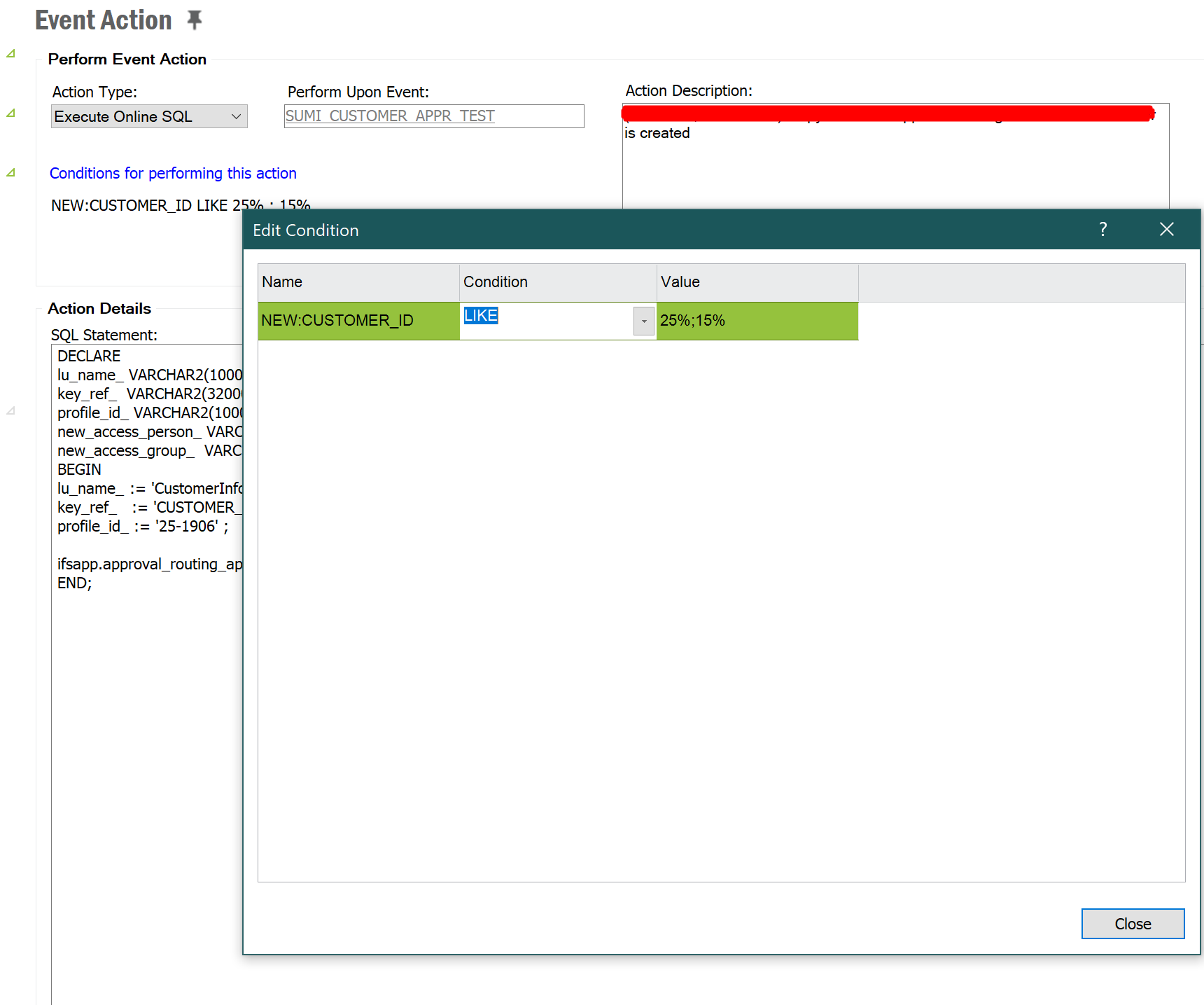Hello ,
I want to know what’s the right syntax to use the condition in custom event :
my condition is : NEW:CUSTOMER like 25% OR 15%.
Here what I’ve used , but it doesn’t work , I guess it’s a wrong syntax , Can anyone help me with that ?

Thank you in advance ,
Hanane








